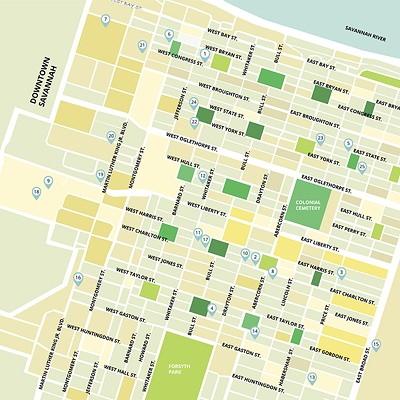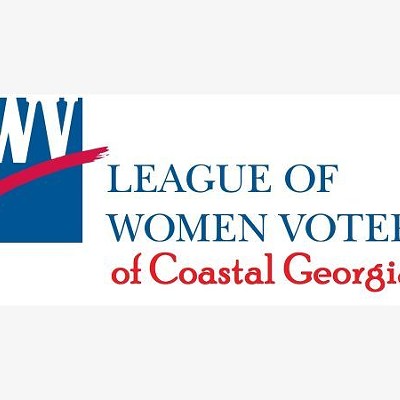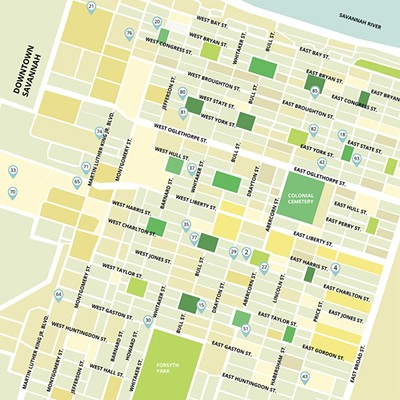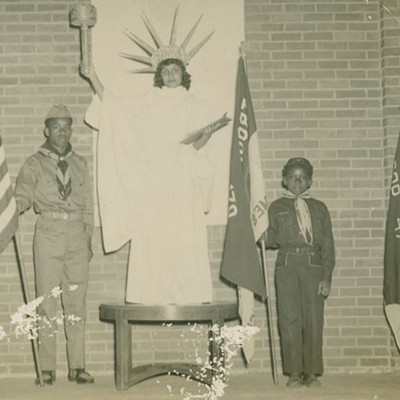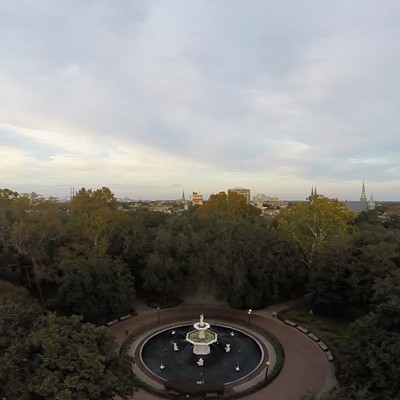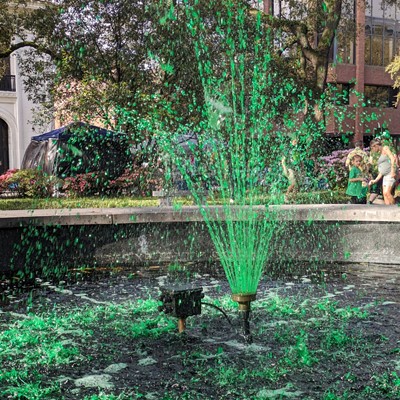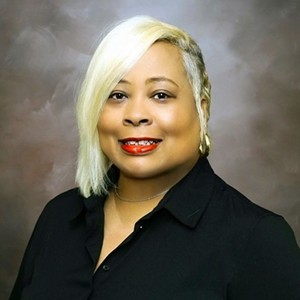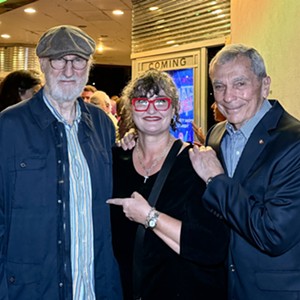LOCAL SOCIAL STUDIES teachers are welcoming a new grant provided to a partnership between the Savannah-Chatham County Public Schools and the Georgia Historic Society.
The $1 million Teaching American History grant from the U.S. Department of Education covers a period of three years, beginning Oct. 1 and is designed to help social studies teachers in third through eighth grade improve the quality of American history education by attending lectures, reading biographies and traveling to historical sites.
“It’s intended to increase historical content knowledge in teachers with the idea they can pass that knowledge on to their students,” GHS Program Manager Christy Crisp says. “We’ve tried to address some shortfalls in No Child Left Behind, which focuses on math and reading.”
The No Child Left Behind Act of 2001 reauthorized a number of federal programs to improve the performance of U.S. primary and secondary schools by increasing the standards of accountability for states, school districts and schools. In response, schools have been focusing on raising test scores in reading and math. “Social studies and history can get left behind when everything is so test-focused,” Crisp says.
The grant project is entitled America: The Experiment - The Experience - The Echo. The GHS will use its expertise and resources to provide content for the project, including topics, teacher readings and speakers.
The partnership between the GHS and the public schools is long-standing. This is the fifth grant in six years that has been received by the public schools with support from the GHS.
As part of the program, teachers will read biographies of historical figures. “Biographies are a good way to teach literacy and history at the same time,” Crisp says.
“We’ve focused on all kinds of folks,” she says. “George Washington, Thomas Jefferson, Jane Addams, Martin Luther King, Jr., Frederick Douglass, Clara Barton.”
The GHS brings in scholars, nationally recognized experts in their fields, to do lectures. “They come from literally all over the country,” Crisp says.
“We give the teachers a college-level lecture after they read the biographies,” she says. “Then they learn how to take the information they’ve learned back to the classroom.”
This year, teachers will read biographies about Alexander Hamilton, Olaudah Equiano, Gen. William T. Sherman and Thurgood Marshall. “They’ll be getting through 300 years of history in nine months,” Crisp says.
Another of this year’s grant programs will focus on the Old West, Crisp says. Teachers will learn about the Lewis and Clark Expedition, the Gold Rush and other important events. “Teachers will walk away not just with books and material for their students, they’ll get to hear leading scholars,” she says.
Leah Colby, the grants projects director for the Savannah-Chatham County Public Schools, says more partners have been added to this year’s program, including the Telfair Museum of Arts and Sciences, the Savannah College of Art and Design and the Olin College of Engineering in Massachusetts.
This year, teachers will learn about topics as diverse as the Age of Enlightenment, Civil Rights, the Space Race and other topics. “There is also a summer travel program,” Colby says.
Teachers will visit the Boston area to learn about history, Atlanta, Montgomery and Birmingham to learn about civil rights, and Huntsville, Ala. to learn about the space program. In the third year of the program, teachers will visit Washington, D.C.
In one year’s time, as many as 90 to 100 teachers will benefit from the program. “We don’t get as much participation in the summer travel program because people aren’t available to participate,” Colby says.
Teachers are encouraged to incorporate social studies into other areas of study, Colby says. “Science and technology can be incorporated into language arts,” she says. “The arts blend with literature and literacy.”
The grant programs will help the teachers learn how to do that. “We’re trying to take a step further to make our teachers completely rounded,” Colby says.
“Research has indicated that students who are involved in the arts and sciences perform better academically,” she says. “We’re able to get the top historians in the country here to speak because of the Georgia Historical Society. They’re such a valuable partner.”
Past programs have had a high rate of success. “If you improve teachers’ knowledge, students are bound to follow,” Colby says. ” 

